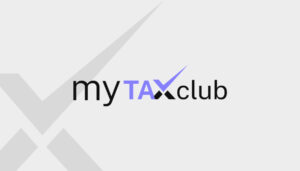House Rent Allowance (HRA) is a key part of your salary package, designed to help you cover rent expenses. Let’s break down how it works and how you can benefit from it.
What is HRA?
HRA is an allowance provided by employers to help employees pay for rented accommodation. It’s part of your salary and can be tax-exempt under certain conditions.
Is HRA Taxable?
Yes, HRA is initially taxable, but you can claim an exemption under Section 10(13A) if you live in a rented house. However, this exemption isn’t available if you choose the new tax regime.
HRA Exemption for Salaried Individuals
Salaried individuals can claim HRA exemptions under Section 10(13A). It’s important to follow your company’s policies on claiming HRA and meet the conditions specified in Rule 2A of the Income Tax Rules.
How to Claim HRA Exemption
To claim HRA exemption, you must:
- Live in rented accommodation.
- Receive HRA as part of your salary.
- Submit valid rent receipts and proof of rent payments.
Calculating HRA Exemption
The lowest of these amounts can be claimed as HRA exemption:
- Actual HRA received.
- 50% of basic salary + DA for those living in metro cities (Delhi, Kolkata, Mumbai, Chennai) or 40% for non-metros.
- Rent paid minus 10% of basic salary + DA.
Example Calculation
Imagine Anwar, who lives in New Delhi, pays Rs.15,000 monthly rent, and earns a basic salary of Rs.25,000 plus DA of Rs.2,000. He gets an HRA of Rs.1 lakh annually. His HRA exemption would be the lowest of:
- Actual HRA received: Rs.1 lakh.
- 50% of basic salary + DA: Rs.1,62,000.
- Rent paid minus 10% of salary: Rs.1,47,600. Therefore, the exempt amount would be Rs.1 lakh.
Claiming HRA with Home Loan Interest
You can claim both HRA and home loan interest deductions if you live in a rented house and own a house in the same or different city, provided you justify the need.
When You Need a Landlord’s PAN
If your annual rent exceeds Rs.1 lakh, you must provide your landlord’s PAN. If the landlord doesn’t have a PAN, they must sign a self-declaration.
Living with Parents/Relatives
You can claim HRA by paying rent to your parents. Ensure you have a rental agreement and transfer rent monthly. Your parents must report this income in their tax returns.
What If You Don’t Receive HRA?
If you don’t get HRA from your employer but pay rent, claim a deduction under Section 80GG, provided you meet specific conditions.
HRA for Self-Employed Individuals
Self-employed individuals can’t claim HRA, but they can get tax deductions on rent under Section 80GG.
How to Claim Deduction Under Section 80GG
The least of the following will be exempted from tax:
- Rs.5,000 per month.
- 25% of adjusted total income.
- Actual rent paid less 10% of adjusted total income.
Understanding and claiming your HRA can significantly reduce your taxable income. Keep accurate records and follow the guidelines to maximize your benefits. For more tax-saving tips, visit myTAXclub and simplify your tax journey with us!

